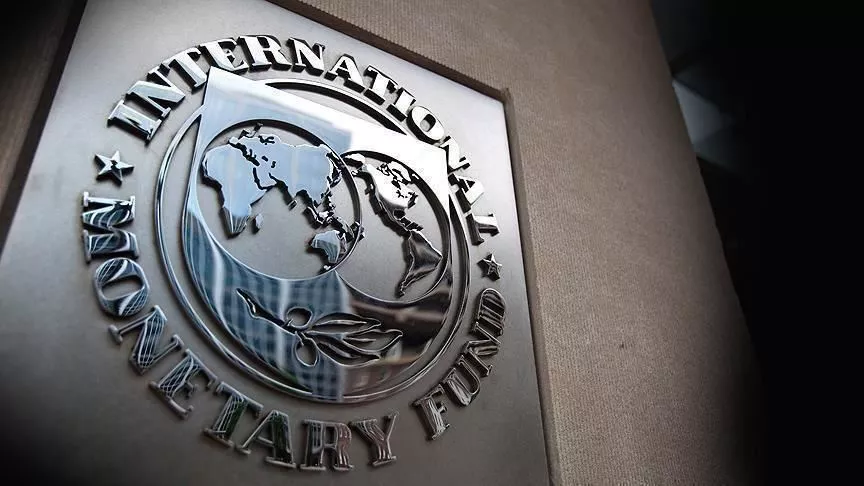IMF to give tax break to businesses hit by corona
Pakistan not to renegotiate $6b package – a decision that may make tax collection target unrealistic
ISLAMABAD: The International Monetary Fund (IMF) has agreed with Pakistan to give tax breaks to businesses being affected by the global coronavirus pandemic but Islamabad does not feel the need to renegotiate the $6 billion package, which may also make next year’s tax collection target unrealistic.“The IMF has agreed to give tax concessions to industries and individuals, who are being affected by the coronavirus,” said Adviser to the Prime Minister on Finance Dr Abdul Hafeez Shaikh on Friday. He was responding to a question during Prime Minister’s media interaction.
But the adviser ruled out the possibility of declaring force majeure to renegotiate the deal saying “nobody thinks that we are there”.
Shaikh said in case of need, Pakistan can ask the IMF for additional support while the Asian Development Bank (ADB) and the World Bank have also agreed to give concessional loans to fight the spike in cases being affected by the global pandemic.
The IMF has already announced $50 billion package for the economies being hit by the contagion.
The adviser said the government would announce a comprehensive relief package for people, industries, exporters, construction, tourism and small and medium enterprises on coming Tuesday.
Shaikh said the economy had started stabilizing before coronavirus contagion hit it. He said besides exports the foreign remittances are also affected. The IMF has already agreed to relax the budget deficit ceiling to the extent of COVID-19 related spending.
The government is also expected to give a general economic policy direction on Tuesday but specific taxation relief measures will be announced in the budget.
However, the monetary policy that the State Bank of Pakistan (SBP) announced this week and the Budget Strategy Paper approved by the federal cabinet on Tuesday suggest that it is business as usual for the government.
The federal government plans to set the Federal Board of Revenue’s (FBR) tax collection target at over Rs6.3 trillion –higher by at least 32% over this year’s now projected collection of Rs4.8 trillion.
In a situation, where the consumption will be drastically affected and some businesses may come to a grinding halt, setting nearly one-third higher revenue collection target would be replication of wrong policies implemented in this fiscal year.
In a possible lockdown scenario due to COVID-19, even R6 trillion tax collection target for next fiscal year seems highly unlikely, according to Ashfaq Tola – a member of the government’s Tax Reforms Implementation Committee.
The ground realities have not been considered while preparing these projections when the stock market shed around 11,000 points, or 27%, since Feb 3, the large-scale manufacturing (LSM) sector dropped by 3.37% during July-Jan period and exports grew marginally, he added.
For this fiscal year, the government had succumbed to the IMF pressure and set the FBR target at Rs5.5 trillion. On this basis, it had estimated provincial shares under the National Finance Commission (NFC) award at Rs3.255 trillion.
But the cabinet’s approved budget strategy paper showed that the provincial governments will now receive only Rs2.836 trillion this year due to steep shortfall in revenue collection.
Balochistan gets its share on the basis of projected revenue while the other three provincial governments receive their shares on the basis of the actual collection.
The strategy paper shows that the three provinces will get Rs419 billion less than the projections, which will adversely hit their spending plans.
For the next fiscal year, the federal government has projected Rs3.626 trillion provincial shares, which suggest that the FBR’s revenue collection target will be above Rs6.3 trillion.
The strategy paper showed that the FBR will impose additional taxes equal to 2% of Gross Domestic Product (GDP) or Rs1 trillion by curtailing exemptions, rationalizing income taxes, enforcing real income-based taxation by gradually phasing out the final tax regime, and broadening the tax base.
This seems an unrealistic plan and the government needs to seek concessions from the IMF to defer the plan of withdrawing concessions until normal economic conditions are restored.
The IMF Board is expected to approve the second review of the programme on April 10. The government still has time to renegotiate the tax collection target.
The FBR is expected to generate tax revenues of Rs4.4 trillion in this fiscal year with a massive shortfall of over Rs1.1 trillion or 25% against the IMF’s original target of Rs5.5 trillion, according to Ashfaq Tola.
Meanwhile, the federal government exempted 61 types of medical equipment and lifesaving instruments from all types of imported taxes and duties for a period of three months in view of coronavirus pandemic.
The Federal Board of Revenue (FBR) issued three separate notifications for exempting sales tax, custom duties, additional custom duties, regulatory duties and withholding taxes with effect from March 20th to June 19th. These goods can be imported by both the government and private sector entities.
The goods that are exempted from taxes include life technologies real time PCR, biosafety cabinets, PCR chambers, kits, ventilators, masks including N 95 types, vital signs monitors, Intensive care unit beds, infusion pumps, X-Ray machines, face shields, disposable shoes, etc.


COMMENTS
Comments are moderated and generally will be posted if they are on-topic and not abusive.
For more information, please see our Comments FAQ